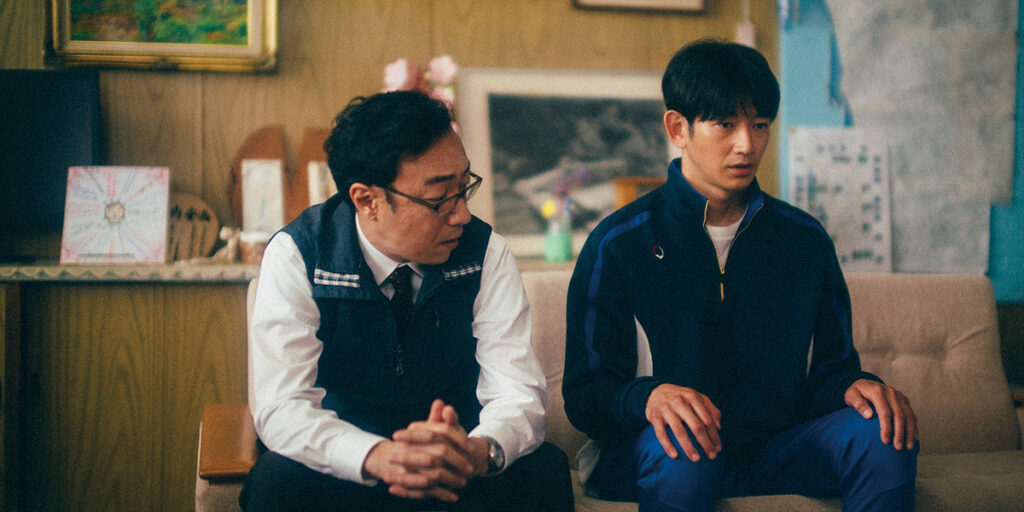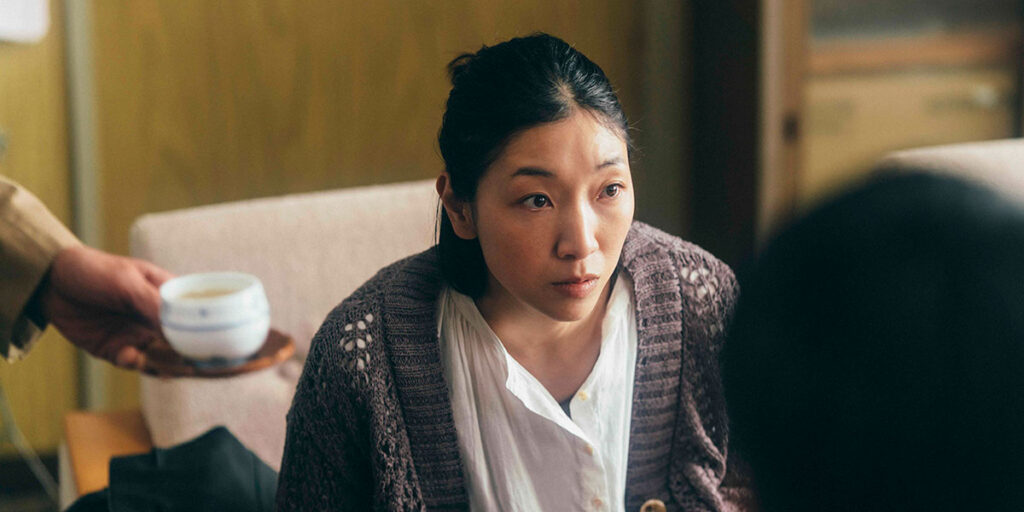
Children don’t always have a full picture of the world or a complete understanding of how everything works. That can lead to confusing situations in which an action or a comment is misinterpreted, and when adults become involved, things can spiral wildly out of control. But it’s just as important to weigh the contributions of the more responsible parties involved since adults can in fact be held accountable for their actions. Monster explores the relevance of truth and the dangerous consequences that can occur when there are efforts made to mask it.
Single mother Saori (Sakura Andō) is unnerved when her son Minato (Sōya Kurokawa) comes home from school and, after some pressure, confesses that he has been hit by his teacher Hori (Eita Nagayama). When Saori marches into the school and demands action be taken, she is startled by the lack of any sort of response from the principal (Tanaka Yūko). She is determined to see justice enacted despite no movement from anyone at the school. As she pushes further to be heard, the other sides of the story come to light.

Monster, which comes from veteran Japanese filmmaker Kore-eda Hirokazu, whose recent works include Broker and Shoplifters, explores a delicate subject. It’s something that has been covered in a variety of different films like The Hunt, The White Ribbon, Luce, and Better Days, among many others. Kore-eda’s approach is to hone in on the individual characters, particularly Minato, his classmate (Hinata Hiiragi), and Hori as well as Saori and the principal, and to show events from their perspective. It’s assembled in a subtle manner free of deliberate transitions, which serves to further complicate the narrative since it feels as if the same events are playing on an endless loop.
As he movingly explores youth and the nature of truth, Kore-eda also presents a worthwhile examination of honor. Hori has his own opinion of what happened and seeks not to be misrepresented, yet there’s also the reputation of the school to consider, which can’t be tarnished by problematic allegations against a teacher or a student. Saori’s understanding of honor stems from what she believes is right, and the fact that she doesn’t have all the information is not her fault since she inherently wants to believe her son. And then there are the kids, who are subject to bullying and peer pressure from others who haven’t lived long enough to know what is right and wrong.

Kore-eda once again delivers a compelling and layered depiction of family and how people act towards each other. There are no easy answers in this film, and even when everything appears clear with no remaining ambiguities, there isn’t any one conclusion that can perfectly sum everything up. In his collaboration with screenwriter Sakamoto Yuji and the late composer Ryuichi Sakamoto, he crafts an incisive look at the way people choose to engage with what they believe is right and how others contribute their own perspectives in different ways.
The cast delivers tremendously, led by Sakura and Eita, who dig into the contradictions of their characters and how they are shaped by the way others see them. Young performers Soya and Hinata also engage well with the material, which manages to probe difficult, mature subjects without veering into disturbing territory. This is a thought-provoking film that presents its events out of sequence to create further questions for audiences, who can watch what seems like a matter-of-fact presentation of a story, only to continue learning throughout the film about how what people say and what actually happened don’t always align.
Grade: B+
Check out more of Abe Friedtanzer’s articles.
Monster makes its North American premiere in the Special Presentations section at the 2023 Toronto International Film Festival.

